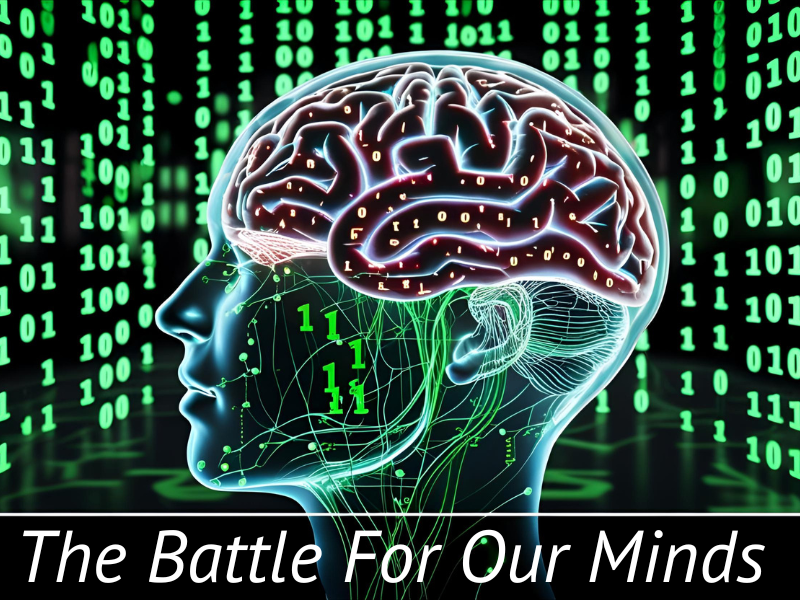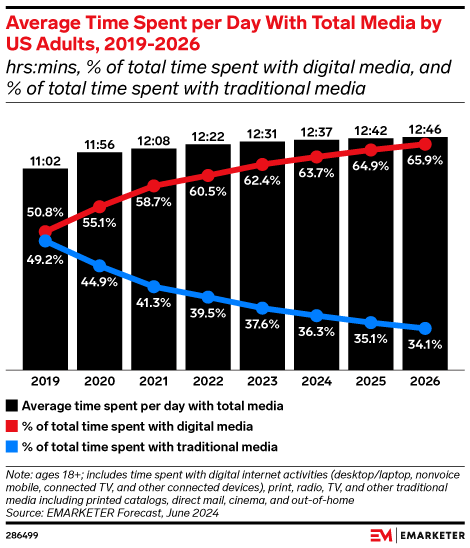
“We don’t know who struck first, us or them” – Morpheus
“A few weeks ago, I went to see the new immersive experience of The Matrix at Cosm (read more about that experience and its implications for LBE here). Beyond the sheer coolness of the experience, what struck me most was the audience’s reaction when Morpheus revealed the bleak, post-apocalyptic landscape caused by humanity’s war with Artificial Intelligence.
“We don’t know who started it…Us or Them.” Morpheus
The nervous laughter from the audience during that scene told me something powerful: what once seemed like pure science fiction now feels unsettlingly real to a lot of people.
The irony is that “us” and “them” are the same. Humans built these tools, bit by bit, steadily eroding our freedom and agency. I’ve been observing this decades-long battle for our consciousness unfold. In my first article, The Battle for Our Minds – Part 1, I explored how leaps in communication technology—from Gutenberg’s printing press to today’s internet—have intensified the strain on our limited attention spans. After the digital boom of the 1990s, attention evolved into currency, increasingly hijacking our cognitive bandwidth.
Early web companies struggled with monetization until they adopted the advertising model perfected by radio and TV. Advertising-supported models led to the explosion of the information economy. Banner ads and search-targeted advertisements made Google a giant, employing “cookies” to record user behavior for targeted ads.
Social media took it to another level. Social media platforms sell our attention to advertisers, so we don’t have to pay subscription fees. It’s an opaque value exchange that started with the early days of the web in the 1990s. We create an account and permit apps to track our behavior across all our devices, websites, and even other apps. There’s a long-held suspicion that some apps even “listen” to our conversations through our phone microphones (they don’t, but the truth is worse.)
Tailoring Reality – Algorithms and Content Delivery
This decade, TikTok took the algorithm that was primarily used to figure out what ad to serve and applied it to content. Every video you see is tailored to keep your attention just a few seconds longer. Its algorithm is so effective that the US government has attempted to ban it for fear that the Chinese government could use it for subversive purposes.
All the other social media companies have been applying AI to compete. Facebook, Instagram, YouTube, TikTok, no matter where you go on the internet, you’re being served up a stream of customized content designed just for you to hold your attention. Because the longer you stare at the screen, the more ads you see, and the more money the platforms make. In 2024, social media companies generated a quarter of a TRILLION dollars in revenue.
U.S. Congressman Francis E. Walter of Pennsylvania, Chair of the House Un-American Activities Committee, said in a speech in July 1956,
“Control of the media of communication and information means the control of the mind, and for the Communists this would mean a victory of far greater importance than victory on a dozen battlefields of war. (They) know that movie screens and television channels are weapons of far greater potential power than any of the nuclear devices whose secrets we guard so jealously.”
While governments worry about national security, the real threat to you and I are that our agency has been slowly taken from us. We no longer control what we think or how we act. If we did, would we consciously spend an average of 6 hours a day on our phones? More than 3 hours a day with social media? And more than 12 hours a day interacting with media of all kinds?

The AdTech industry is approaching a trillion dollars a year and is forecast to hit 2.5 trillion by 2032. We used to decide which newspaper to subscribe to, which news anchor to watch, and what books to read. Now, almost all our media is served to us by computer algorithms and AI based on the goals of trillion-dollar media platforms, governments, and foreign agents using us as pawns to shape the financial and geopolitical landscape. It’s the engine that shapes public perception about wars and determines elections. But it also shapes how you see the world, your family, friends, and neighbors. It even impacts how you spend your time each day.
Every time a notification goes off on your phone, watch, or computer, your attention is diverted elsewhere because someone, somewhere, determined that’s what they want you to do. Just sit with that for a few minutes. Do you think that’s freedom? And what happens when machines start thinking for us? (they already are…)